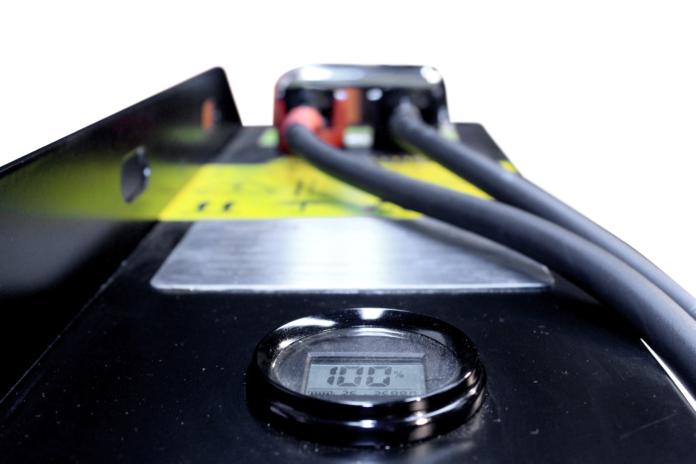Lithium iron phosphate (LiFePO4) battery systems have a much lower total cost of ownership compared to traditional lead acid (Pb) batteries.
This is according to CHASE Technologies General Manager Brent Fraser. CHASE, an acronym for ‘Chemical and Solar Energy Technologies’, is a specialist provider of LiFePO4 battery systems for forklifts in materials-handling applications, in addition to battery-operated heavy equipment such as cleaning equipment and access platforms.
“We have an exclusive distribution agreement with the highest-volume producer of heavy-duty LiFePO4 batteries globally,” Fraser reveals. These range from small 25.6V 135Ah units, right up to larger 80V 700Ah units. Unlike Pb batteries, LiFePO4 batteries from CHASE Technologies have a full five-year guarantee, which means no unanticipated cell replacements during the contract period.
Even when LiFePO4 batteries do fall below the efficient operating nominal capacity of 65%, they can still be used in lighter-duty forklift applications or retained as storage batteries, adding value long after the warranty itself has expired.
LiFePO4 batteries are sealed units that do not require topping up of electrolyte or periodic acid adjustment, and no equalisation charge or cooling periods are required.
LiFePO4 is also environment-friendly; reducing heavy metal pollution as it is produced without any cadmium, lead or mercury. “Reduced energy consumptions means less electricity required, and therefore reduced carbon footprint” Fraser points out.
The energy density of LiFePO4 is about 140 Wh/kg or three times that of Pb batteries. In comparison, LiFePO4 is only around 33% of the volume and 25% of the weight of Pb batteries. This means much higher-capacity batteries can be used in the same compartment, with greater configuration flexibility.
A LiFePO4 battery-powered vehicle is claimed to travel 1.35 times longer or further than the same vehicle fitted with a similar capacity Pb battery. During charge and discharge, the energy-conversion efficiency of the former is about 98%, compared to a maximum of 85% efficiency for Pb, translating into a significant 15% electricity saving.
Due to their chemical composition, LiFePO4 batteries are also the safest and most stable of all lithium ion (Li-ion) batteries by not emitting any harmful acidic gases or hydrogen during charging, as do Pb batteries, which poses a health and safety risk. The absence of any sulphuric acid based electrolyte eliminates corrosion and reduces the premature failure of cables, connectors and battery tanks.
With the appropriate ultra-fast chargers a Li-Ion battery can absorb 50% of its capacity from a boost charge time of just 30 minutes. Full charge can be achieved in 60 to 120 minutes, dependent on the charger capacity. Rapid and opportunity charging ensures 24/7 availability.
Full charge does not need to occur in one continuous charge, but is equally effective with compound brief charges during breaks. There is no memory effect, which means opportunity charging is ideal for heavy-duty working conditions in long and multiple shifts. Ultra-charging, in turn, eliminates the need for multiple batteries and battery changeovers, as batteries can be boost charged during breaks or idle times. This reduces the risk of any accidents during battery changeovers and eliminates the need for battery bays with forced ventilation and battery attendants.
